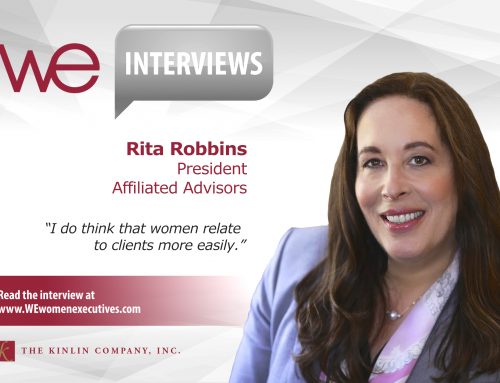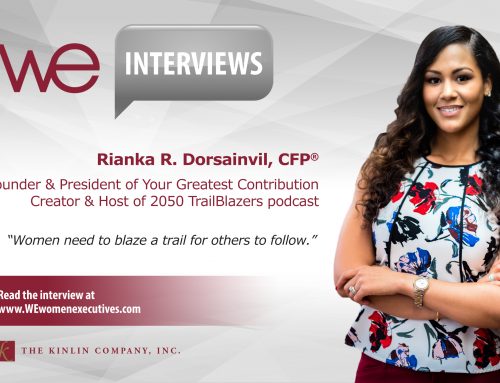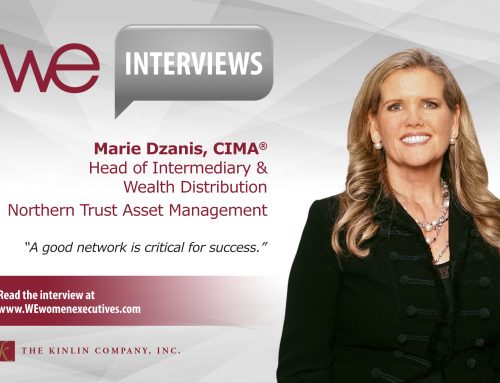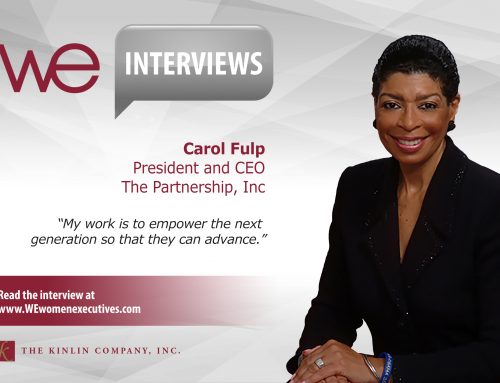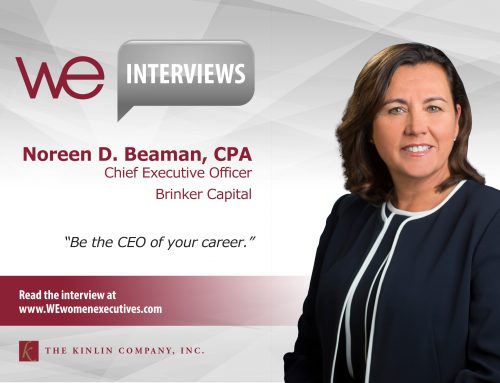When today’s women executives encounter gender discrimination, it is often more subtle than it was in the past. Karla Rabusch, President of the Wells Fargo Funds Management Group, believes these biases within financial services still exist, but their nuanced nature can make them difficult to pin down and tough to counteract.
When I met with her in September, she gave me an illustrative example. She was attending a lunch meeting at her office. She was the only woman in the room, and also the most senior person in attendance. A man, junior to her, walked into the meeting and, seeing that there was no silverware on the table, looked at Rabusch and asked, “Are they bringing any silverware?”
“This man looked to me, the only woman in the room, to do an administrative type task to get the silverware. After the incident, I talked to him to discuss why this was problematic. He was mortified. He didn’t even realize that he directed the question to me,” Rabusch said.
Rabusch believes that this more nuanced form of gender discrimination also comes into play when senior executives hand out projects and assignments. “Men may not realize that they are more comfortable with someone who is similar to them. I think we can combat these situations by raising awareness about this subtle type of discrimination. I’m personally spending more time pointing these instances out.”
The Value of Gender Balance
Because the asset management industry is still predominately male, Rabusch contends that organizations need to continually work to attract more women. “A diverse organization is a good thing because it brings a diversity of perspectives to the table, which is very helpful for sound decision making.”
In order to attract more women to the industry, companies must focus on having women represented in senior positions within the company, so that junior women know there isn’t a glass ceiling. Rabusch said, “I’m proud to say that Wells has more women sales professionals than many of our competitors in part because those women see me as president of the company. They feel very supported by having a woman in the top role.”
Get Out of Your Comfort Zone
When Rabusch was in the early stages of her career, she had the opportunity to stay in the job she had with the understanding that her role would be upgraded, or to take a lateral move into a more operational position, which required a totally different skill set. Because of advice from two trusted mentors, she took the operational job. “That was such a pivotal move for me,” Rabusch said. “What I learned from that move was how important it is to get out of your comfort zone and take a job that is a stretch. It’s the only way to develop a different skill set and competencies.”
The operational position she accepted, which was running the fund accounting at IDS Financial Services (which was renamed American Express Financial Advisors after being acquired by American Express in 1984), required her to lead a demoralized team through a major shift in corporate culture. “When I arrived, the morale was so bad that my leadership team and I had to fundamentally rebuild and change the culture. What I thought of as just an operational job turned out to require my strategic planning background as well in order to fully revamp the organization.”
Rabusch led a very successful organizational change which focused on improving team culture and organizational processes. The job that she had thought of as an unglamorous operational role turned out to be transformational for Rabusch’s career. It opened avenues for advancement that she had not anticipated. “I’m 100% convinced that taking on that role got me where I am today.”
Focus on Culture
In 1997, Rabusch left American Express Financial Advisors to become the CFO of Wells Fargo Funds Management and in 2003, she became President.
One year after Rabusch became President, Wells Fargo acquired Strong Financial. She recounted, “My first major challenge in my role as President was integrating these two organizations and figuring out how to combine the best of both companies and cultures.”
Working together with Kristen Norton, who was the head of Human Resources for the Funds Management Group at the time, Rabusch put a priority on establishing the corporate culture. “Kristen Norton was integral in helping me thoughtfully shape the culture. She was a very strategic HR partner that worked with me to make sure the business and HR strategies were linked. That had a great impact.”
By focusing on culture, training, and developing transparent processes, the integration of the two companies went flawlessly because the two groups learned how to work together, make decisions together, and operate under shared principles.
Seek Feedback and Act Upon It
As a leader, Rabusch asks her team to engage in honest and open conversations and to speak up if they disagree. She said, “I’m continually fighting against this idea of artificial harmony, in which people publicly agree, but then carry on side conversations where they share their grievances. I encourage people to openly share their differing views. I tell my team that silence is acceptance. If you don’t talk, then I’ll have to assume you agree.”
Listening to differing views is also important when executives receive feedback about their personal performance. Rabusch counsels people to, “seek feedback and act upon it. The people that succeed really listen to feedback, take it to heart, and make a concerted effort to strengthen their weak spots.”
Integrity Matters
Integrity is the bedrock principle in Rabusch’s leadership philosophy. “When I speak of integrity, I’m talking about the ethical aspect of it, but integrity encompasses more than that. It means leading by example, walking the talk, being consistent and transparent, and treating people with respect.”
By leading with integrity and thoughtfully creating a work culture based on honest dialogue, transparent processes, and a collaborative environment, Rabusch has successfully lead her company through transformational integrations.
During the Wells integration with Wachovia, one of the executives who came from Evergreen Investments, Wachovia’s asset management arm, approached Rabusch and said, “When you asked us to spend so much time focusing on culture and training, I was frustrated that we weren’t attending to the business at hand. I didn’t get it. But, the integration went off without a hitch and, thanks to the training; we all know how to work together. So, now I understand.”
Rabusch said, “That was one of the best compliments I’d ever received.”


